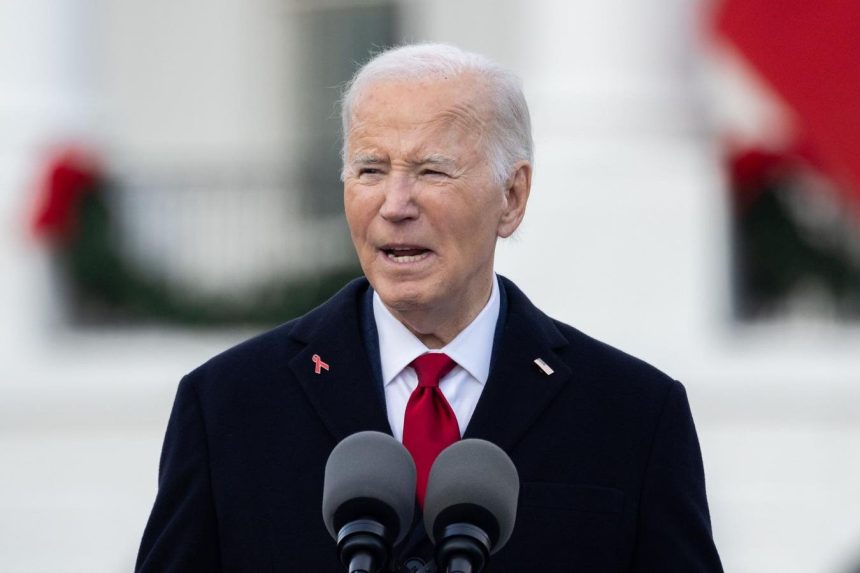President Joe Biden is expected to grant more pardons before the conclusion of his presidency, as indicated by White House Press Secretary Karine Jean-Pierre. This announcement comes on the heels of Biden’s unexpected pardon of his son, Hunter Biden, raising discussions about potential clemencies as his term draws to an end. Although Biden has not publicly disclosed specific individuals who may receive pardons, several lawmakers and advocates are actively campaigning for clemency for a variety of cases, highlighting the ongoing issue of selective prosecution and calls for criminal justice reform.
Among those seeking presidential pardons is Marilyn Mosby, a former Baltimore prosecutor who faces charges of mortgage fraud and perjury. Advocates such as civil rights attorney Ben Crump and political strategist Angela Rye argue that Mosby is not alone in experiencing selective prosecution, asserting that her wrongful prosecution is tied to her accountability efforts in cases involving police officers related to the 2015 death of Freddie Gray. This situation underscores the broader sentiments regarding the fairness of the legal system and suggests that efforts to address perceived injustices are gaining traction among political figures.
Additionally, there have been suggestions from lawmakers, including Senator Ed Markey from Massachusetts, encouraging Biden to pardon individuals who may face retaliation from former President Donald Trump. This includes people involved in legal actions against Trump, such as New York Attorney General Letitia James and Special Counsel Jack Smith. Such preemptive measures are suggested as a way to protect those who took part in the legal process against a figure who has been openly hostile to the justice system. This highlights a complex interplay between political dynamics and the exercise of presidential pardon powers.
A coalition of Congress members, spearheaded by Representative James Clyburn, has urged Biden to respond to injustices in criminal sentencing practices. They are advocating for clemency for vulnerable populations, including the elderly, mentally ill individuals, and those serving excessive sentences for crimes disproportionately punishable under harsh laws. Emphasizing humane and equitable treatment within the justice system reflects a growing movement among lawmakers to rectify systemic issues that have long plagued marginalized communities. Similarly, Senate Democrats recently called for clemency for those convicted of drug offenses, particularly urging relief for individuals sentenced under outdated laws that would have resulted in more lenient penalties today.
Moreover, advocacy groups have also pointed to the plight of those on death row, with organizations like the Prison Policy Initiative appealing for clemency for 40 individuals currently awaiting execution. The urgency surrounding these requests highlights the need for reform in the criminal justice system and raises important ethical considerations about capital punishment and its application. With the landscape of legal protections and societal attitudes shifting, proponents for clemency are pushing for reconsideration of past convictions, particularly those seen as unjust.
Biden’s recent pardon of Hunter Biden has sparked a polarized reaction among political figures and the public alike. The decision, positioning the president as a defender of his son’s interests amidst legal challenges connected to taxes and gun possession, has drawn criticism, including accusations of favoritism. Biden claims that the charges against Hunter stemmed from a politicized agenda and not from standard legal considerations, emphasizing the rarity of such prosecutions. This act has heightened scrutiny regarding the ethical implications of presidential pardons, particularly when family interests are involved, and has reignited debates over justice, accountability, and the integrity of the legal system.



